For regular AppleInsider readers, last week's Apple event came with no major surprises, as the rumor mill signaled exactly what to expect from the iPhone 7 and Apple Watch Series 2. Here's a recap of which sources got it right — Â in some cases well in advance of the product announcements.
Apple rumors generally follow the same pattern
For those who aren't familiar with the Apple product rumor cycle, here's how it works:
A few years out from a product's launch, sketchy supply chain reports will begin to surface. These are usually based on general industry trends or efforts to read into patent filings or Apple's corporate acquisitions.
About a year before the product's launch, the picture starts to become much clearer — and more accurate. There is occasional noise or misinformation, but numerous reports begin to agree on the larger points.
Parts for new products then begin to leak in the months leading up to launch — Â at first they trickle slowly, but as Apple ramps up production, they become common. In the few months before an iPhone launch, the design of the product is all but confirmed.
Why does this happen? Though Apple Chief Executive Tim Cook vowed to "double down" on secrecy back in 2012, the truth is Apple's supply chain is so massive, and the number of products the company must produce is so mind bogglingly large, that leaks are seemingly impossible to stop.There is no way Apple could put 75-million-plus iPhones in the hands of consumers in a single quarter without involving all kinds of outside partners and suppliers.
There is no way Apple could put 75-million-plus iPhones in the hands of consumers in a single quarter without involving all kinds of outside partners and suppliers.
For this reason, Apple's Sept. 7 event lacked any major surprises — at least, not for those who read AppleInsider. Here's quick rundown of how we knew almost everything ahead of time, and who got it right.
Nailed it: Ming-Chi Kuo
What they got right: The dual-lens camera system, based on acquired LinX technology, is exclusive to the larger iPhone 7 Plus. The iPhone 7 Plus also has 3 gigabytes of RAM while the iPhone 7 has 2 gigabytes. The new lineup has a wide color display, and capacities range from 32 gigabytes to 256 gigabytes. Finally, the Apple Watch Series 2 is a largely internal upgrade, with the device looking essentially the same on the outside.
When they got it right: Kuo accurately weighed in on the iPhone 7 Plus A10 processor in November of 2015. He followed up with details on Apple's new dual-camera system for the iPhone 7 Plus in January of 2016 He also nailed the details of the second-generation Apple Watch in April while exact capacity options were reported earlier this month.
Nailed it: Macotakara
What they got right: iPhone 7 and iPhone 7 Plus ditched the 3.5-millimeter headphone jack, and adopted a new pressure sensitive home button that doesn't click. Apple also introduced two new shades of black color options.
When they got it right: Macotakara was first to report this in November of 2015. It also revealed the force sensing home button in July of 2016, while all five color options were revealed by the site in late August.
Nailed it: Mark Gurman
What they got right: Apple introduced a new pair of truly wireless separate left and right earbuds, dubbed AirPods. The company did not refresh any Macs at its Sept. 7 event.
When they got it right: Gurman was the first to report on the earbuds in January of 2016. He also said in August that Apple would not be updating the MacBook Pro this month. New Macs will wait until later this fall.
Nailed it: Apple itself
What they got right: Sometimes Apple is inadvertently the source of their own leaks. Products such as AirPods, the iPhone 7 A10 Fusion Chip, and the iPhone 7 name itself were revealed through international patent filings, while a mistakenly sent Beats promotional email indicated new headphones would be announced Sept. 7.
When they got it right: The AirPods trademark was discovered in July of 2016, while a number of other trademarks and the new Beats products were revealed a few days before the event. And then the day of the keynote, Apple's own Twitter account published all of the details about the iPhone 7, including pictures of the hardware, before it had been officially unveiled.
Some other other correct reports
The first to report that the iPhone 7 would double entry-level storage to 32 gigabytes was The Wall Street Journal in July. Taiwan's hit-or-miss Commercial Times was first to report in December of 2015 that the iPhone 7 would be waterproof and feature a new antenna-concealing design.
The big miss: iPhone 7 Plus doesn't have a Smart Connector
While no individual publications or people said the iPhone 7 Plus would have a Smart Connector, a number of leaks out of Asia suggest Apple was at least toying with the idea of including the magnetic port on the back of the 5.5-inch model.
Whether the leaks were legitimate and represent scrapped plans, or if they were fake mockups designed to deceive, will likely never be known. But one thing can be said for certain: The iPhone 7 Plus does not include a Smart Connector.
A few misfires
Apple rumors are a dangerous game — Apple's secrecy and misdirection can lead to bogus claims, and sometimes the company itself changes course before a product comes to market. As a result, there are inevitably incorrect claims made ahead of a product launch.
Even AppleInsider whiffed it in November of 2015 when a reliable source suggested executives at the company were considering an earlier-than-usual iPhone launch this year. Though the iPhone 7 is launching in Apple's usual September timeframe, the company did debut a completely new entry-level handset, the iPhone SE, in March. Not quite the same, though, and wrong.
Another one that missed the mark came from MacRumors, which reported in February of 2016 that the iPhone 7 would offer a flat back with a flush camera. The single camera on the iPhone 7 and the dual lenses on the iPhone 7 Plus both protrude, and that rumor proved bogus.
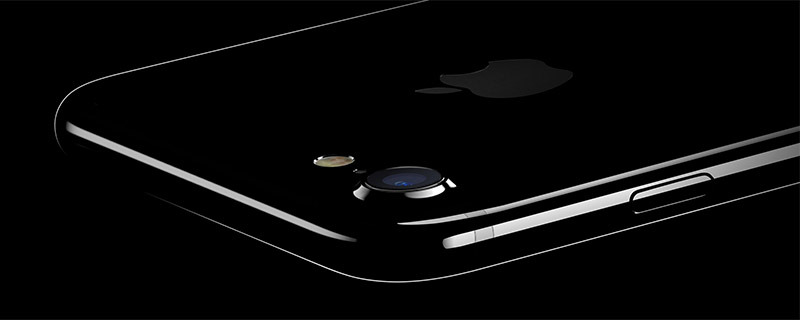 Remember when the iPhone camera bump was derided as the design equivalent of Quasimodo? Now it's a feature.
Remember when the iPhone camera bump was derided as the design equivalent of Quasimodo? Now it's a feature.Reliable sources mix things up, too. Though he had the most right about the iPhone 7, Kuo suggested in September of 2015 that the iPhone 7 could be as thin as an iPod touch or iPad Air 2. It's not.
While he nailed AirPods specs like proprietary low-power Bluetooth technology, Kuo did say Apple would position the headphones in a price range above Beats's lineup of wireless cans. Three new Beats models were unveiled at Wednesday's event, each featuring wireless technology powered by Apple's W1 chip. Though AirPods are more expensive than the $149 Beats X, Apple's branded wireless offering is cheaper than the $199 Powerbeats 3 Wireless and $299 Beats Solo 3 Wireless models.
And although its track record was strong, Macotakara was also incorrect when it suggested the iPhone 7 would come in a new deep blue shade in June. The site eventually course-corrected to nail all five colors before the product was unveiled.
Gurman, too, was wrong when he reported that a "full redesign" of the Apple Watch was due this fall. The Apple Watch Series 2 looks largely the same as its predecessor, and a redesign will have to wait.
Even the most reliable of sources on Apple rumors get the details wrong from time to time.
The lesson here is: Even the most reliable of sources on Apple rumors get the details wrong from time to time. Though the collective efforts of the tech media generally sort out what to expect from an Apple event ahead of time, no one publication is batting 1.000. The proverbial baby and bathwater, forever intertwined.
The cycle continues: 2017 iPhone rumors already rampant
For Apple fanatics (and thankfully for publications such as AppleInsider), rumors about upcoming updates don't stop. In fact, expectations for the 2017 iPhone — Â which some have taken to calling an "iPhone 8" — Â are already starting to solidify.
Rumors are calling for a radical redesign of the iPhone next year, with an all-glass chassis and OLED display that could conceal the FaceTime camera, earpiece, and home button behind or within the screen. It's possible that the major changes will be limited to the larger "Plus" series, per some claims.
As the fall of 2017 approaches, the rumor mill will inevitably begin to coalesce around a similar narrative, and it will probably prove accurate on some fateful September day, when Apple holds a keynote and attempts to wow the world with its latest handset.
The truth is, there are too many cogs in the wheel, and Apple cannot possibly stop all of them from squeaking.
 Neil Hughes
Neil Hughes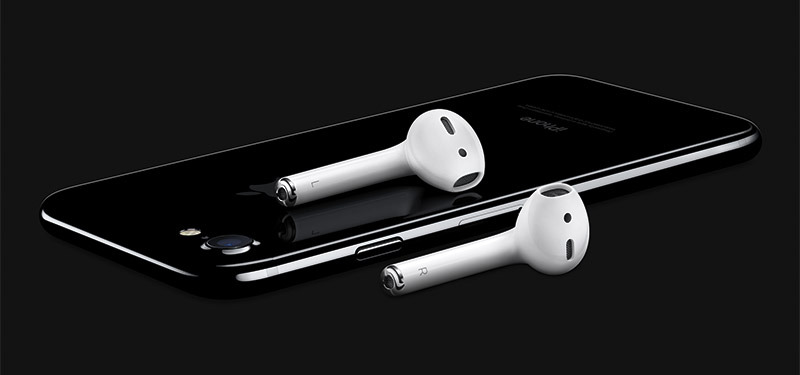
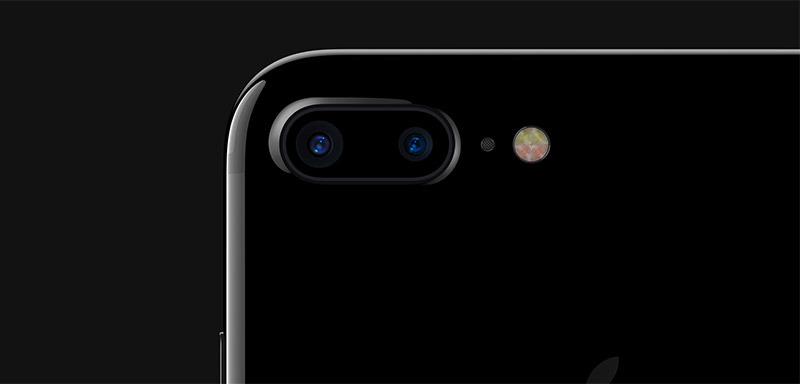
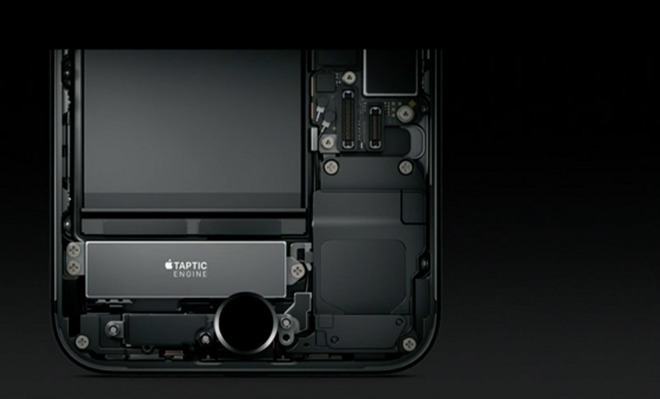
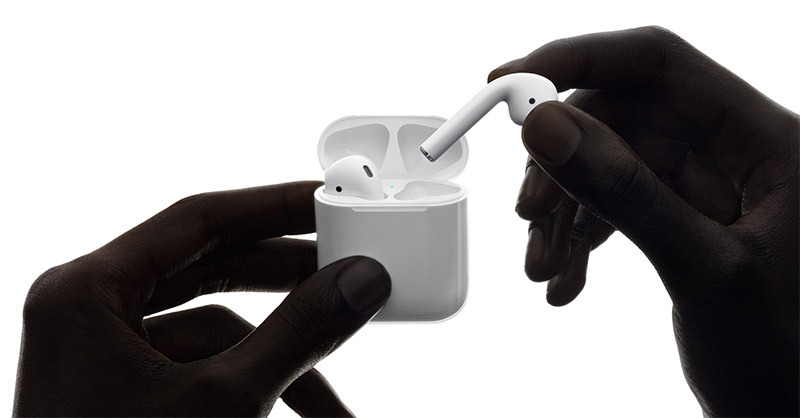








-m.jpg)





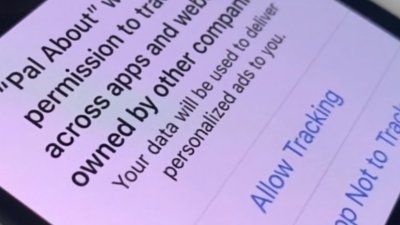
 William Gallagher
William Gallagher
 Brian Patterson
Brian Patterson
 Charles Martin
Charles Martin


 Malcolm Owen
Malcolm Owen

 Christine McKee
Christine McKee









63 Comments
Apple rumors are an industry unto themselves WOW which other Company can claim that ? Would you believe it all started in a garage ? By two guys ? Here's to the Dreamers http://ben-evans.com/benedictevans/2016/4/28/winning-and-losing
At one time or another, pretty much everything that was even remotely possible appeared as a rumor. I'm not sure you can credit the rumor mongers with being "right" or "wrong" about anything. Even a blind pig occasionally finds an acorn.
And this is precisely why Apple events are now criticized as boring, disappointing, and meh. The rumor sites pound their chests for getting the scoop but Apple suffers PR damage from the tech press because there is no suspense.
it probably works this way: 1. An Apple employee or OEM component manufacturer employee ("employee X") contacts Gurman with a tip. That tip is specific and significant, and it turns out to be real information. 2. Next year, Gurman publishes another employee X tip, gets a scoop, boosts web traffic and ad revenue. Employee X is now a trusted source for Gurman. 3. The following year, employee X asks for money for tips, which Gurman pays. 4. Gurman pays employee X for tips every year, as long as those tips turn out to be real.
As far as I'm concerned nobody nailed the A10 chip (outside of it being called A10, not much of a stretch there), the big.LITTLE type configuration was a surprise to everyone.